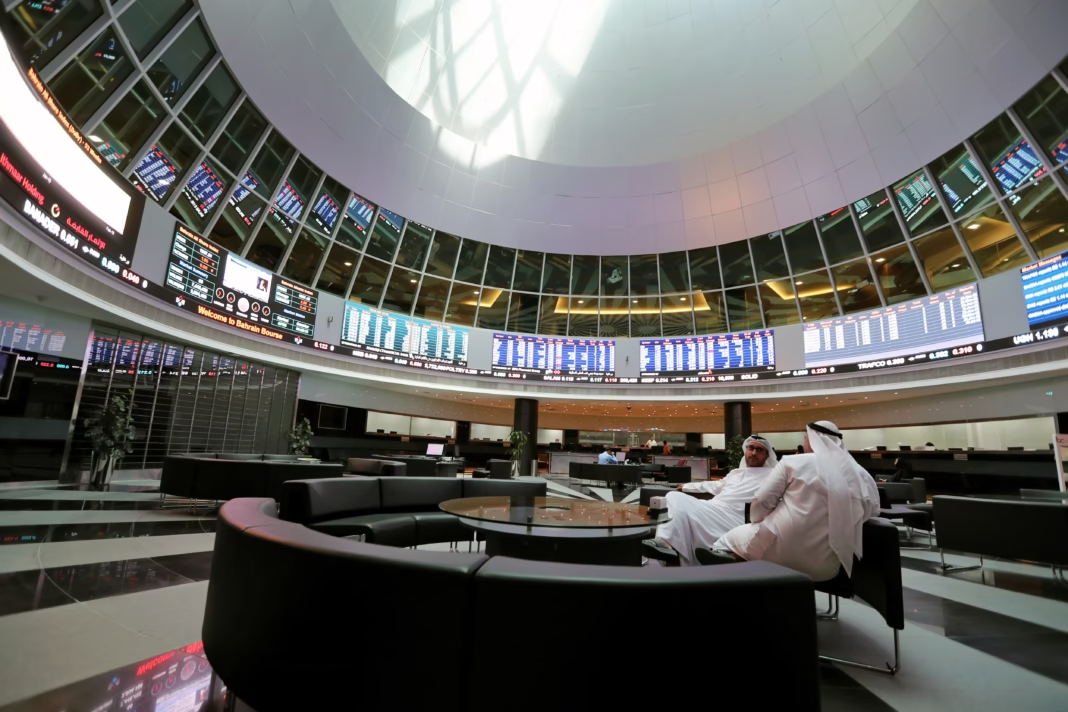The Bahrain Bourse recorded a 1.4 percent decline in August, ending a three-month winning streak. The index closed at 1,929 points as most sectors weakened. Four of seven indices fell, led by a 6.1 percent drop in the heavyweight Materials Index, driven by Alba’s performance.
However, the financials index defied the trend with a 0.1 percent gain, closing at 7,422 points. This resilience came from strong moves by Solidarity Bahrain, which jumped 14.3 percent, and GFH Financial Group, which gained 4.1 percent. Consequently, the Bahrain Bourse financials segment provided rare support during a tough month.
The communications services index slid 2.7 percent due to a 2.5 percent fall in Zain Bahrain shares. Solidarity Bahrain topped the overall gainers with its 14.3 percent rise. Bahrain National Holding followed with a 9.6 percent gain, while Bahrain Kuwait Insurance rose 6.8 percent. On the losing side, Bahrain Commercial Facilities dropped 9.8 percent, followed by AlAbraaj Restaurant Group at 9.1 percent and Ithmaar Holding at 6.7 percent.
Meanwhile, trading activity slowed sharply. Traded volume plunged 84.7 percent to 24.6 million shares, compared to 161 million earlier. Total traded value dropped nearly 70 percent to BD8.7 million. Al Salam Bank-Bahrain led volumes with 4.5 million shares, followed by Beyon with 3.1 million and GFH Financial Group with 2.9 million. In terms of value, Alba led at BD2.3 million, ahead of Beyon at BD1.5 million and National Bank of Bahrain at BD1.2 million.
Beyond the market, Bahrain’s economy expanded 2.7 percent year-on-year in the first quarter. Non-oil activity rose 2.2 percent, while the oil sector increased 5.3 percent. Non-oil sectors contributed nearly 85 percent to GDP, underlining the importance of diversification. Foreign direct investment rose 3.5 percent to BD17.1 billion, reflecting continued global confidence.
Key contributors included accommodation and food services, which grew 10.3 percent, and financial and insurance activities, which rose 7.5 percent. Construction and education also expanded, reinforcing Bahrain’s balanced growth model.
Regionally, the GCC equity markets fell 2.3 percent in August after two months of gains. Abu Dhabi led the drop with a 2.7 percent fall, followed by Saudi Arabia at 2 percent and Dubai at 1.6 percent. Kuwait, Qatar, and Bahrain also weakened, while Oman stood out with a 5.2 percent rise. Analysts linked the downturn to a 6.1 percent slide in oil prices and concerns about oversupply.
Despite regional weakness, certain sectors outperformed. The GCC materials index gained 4.3 percent thanks to SABIC, Advanced Petrochemicals, and YANSAB. Pharma, biotech, and diversified financials also posted gains, while insurance saw the steepest fall at 7.2 percent.
The Bahrain Bourse showed resilience within financials, despite overall declines and lower trading activity. Strong economic fundamentals and rising foreign investment continue to support long-term growth. The Bahrain Bourse remains an important market for regional investors navigating a challenging GCC environment.





